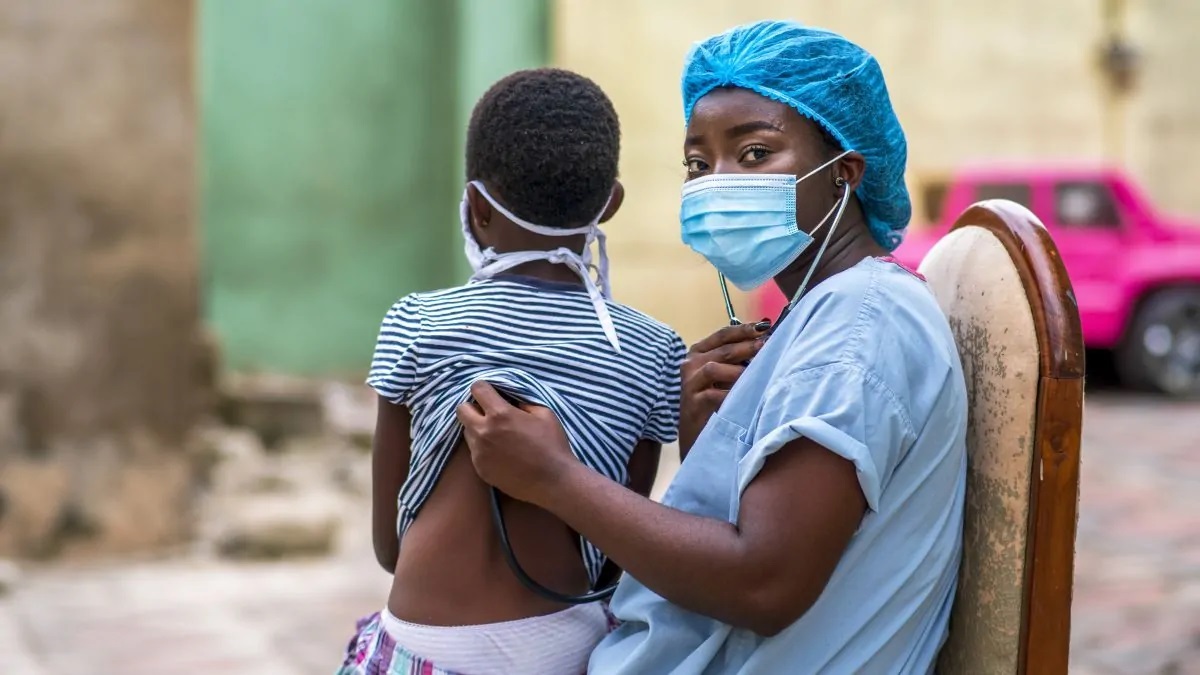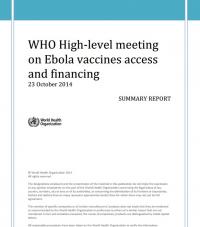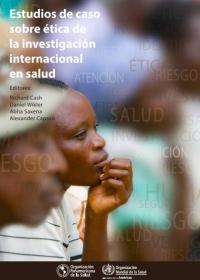Africa faces a health emergency: millions of children at risk from contagious diseases

Eastern and southern Africa are facing an unprecedented health crisis, with multiple outbreaks of contagious diseases putting the lives and well-being of millions of children at risk. The spread of preventable diseases and the impact of climate factors have intensified the vulnerability of children, the United Nations Children's Fund (UNICEF) warned.
Seventeen of the region’s 21 countries are currently experiencing at least one outbreak, threatening to overwhelm health systems and exacerbate poverty in communities already affected by food insecurity and conflict. “The alarming frequency of public health emergencies and disease outbreaks in the region is disrupting vital safety nets for children and depriving them of their right to a safe and nurturing environment,” said Etleva Kadilli, UNICEF Regional Director for Eastern and Southern Africa.
Vaccine-preventable diseases and emerging health crises
The current health crisis includes outbreaks of vaccine-preventable diseases such as polio, measles and diphtheria. Falling immunization rates in several countries in the region have allowed these diseases to re-emerge, reversing significant advances in public health.
In addition to preventable diseases, the region is facing outbreaks of viral haemorrhagic fevers, such as Marburg virus disease in Tanzania and Ebola virus disease in Uganda, both with high case fatality rates. In parallel, mpox remains a major health concern in Burundi and Uganda, with an increasing risk of cross-border transmission due to the constant movement of people.
Cholera, another persistent threat, currently affects 12 countries, including Angola, Burundi, South Sudan, Zambia and Zimbabwe. Eastern and Southern Africa accounts for the largest number of deaths from cholera and acute watery diarrhoea worldwide, a situation that has been worsened by the lack of access to safe drinking water and basic sanitation.
Impact on the child population: extreme vulnerability
Children are the most affected by this health crisis, as their immune systems are still developing and they face a higher risk of serious complications. The situation is even more critical for those suffering from malnutrition, as their ability to recover from infectious diseases is considerably lower.
“In any emergency, children and the most vulnerable suffer the most,” Kadilli stressed. When a family member falls ill, children may experience psychological distress, face dropping out of school or even being forced to work to help with the family economy. This situation also increases the risk of child abuse, exploitation and violence.
Women and girls: a particularly vulnerable group
Health crises not only impact children in terms of health, but also aggravate the situation of women and girls, who face a greater risk of sexual abuse, violence and exploitation. Family separation, the interruption of essential services such as education and health care, as well as economic precariousness, have created conditions conducive to the increase of these problems.
These recurring and often cyclical crises have overwhelmed government response capacities and undermined progress in the provision of essential social services, calling for urgent and coordinated intervention at the global level. “Global and regional stakeholders must come together to strengthen the protection systems offered by families, communities and state services to ensure that all children can thrive, even in the face of multiple challenges ,” Kadilli stressed.
UNICEF intervention and the need for international funding
In the face of this complex situation, UNICEF has stepped up its efforts to protect children from violence, abuse and exploitation. Its initiatives include providing psychosocial support to children who have lost a family member, establishing shelter systems for those left alone while a relative receives treatment, and implementing strategies to prevent discrimination against children who have suffered from illness when they return to their communities.
The organization also works to develop early identification systems and to refer cases of violence and sexual abuse in order to provide a rapid and effective response. UNICEF also coordinates actions to ensure the continuity of essential health, education and welfare services in a safe and accessible environment for all children, including those with disabilities and other vulnerable groups.
However, the magnitude of health emergencies in Eastern and Southern Africa requires increased funding and support from the international community. “ In addition to investments in essential infrastructure and services, promoting routine immunization and addressing social determinants of health, sustained funding for protection efforts must continue to be prioritized to support the overall well-being of children in the region ,” Kadilli concluded.
Call to global action
The multiple health crises in Africa require immediate and coordinated action by governments, international agencies and non-governmental organisations. Ensuring access to vaccination, strengthening health systems and improving socio-economic conditions in affected communities are key to mitigating the impact of these emergencies.
UNICEF continues to work to ensure that children can grow up in a safe and healthy environment, but it is essential that the international community strengthens its commitment and provides the necessary resources to address outbreaks of contagious diseases and other public health emergencies in the region.



